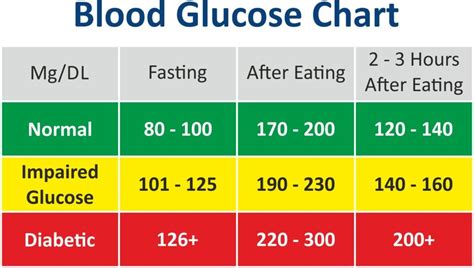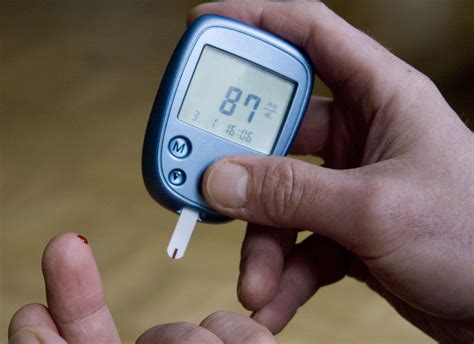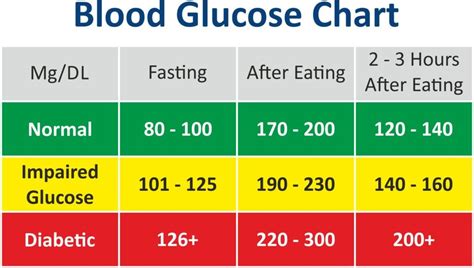Intro
Learn Diabetic Normal Blood Sugar Values, target ranges, and management tips to control glucose levels, preventing hyperglycemia and hypoglycemia, with healthy lifestyle changes.
Maintaining normal blood sugar levels is crucial for individuals with diabetes. Diabetes is a chronic health condition that affects how the body turns food into energy, and it can lead to a range of complications if not managed properly. Understanding what constitutes normal blood sugar values is essential for people with diabetes to make informed decisions about their diet, exercise, and medication. In this article, we will delve into the importance of monitoring blood sugar levels, the factors that influence blood sugar values, and provide practical tips for maintaining normal blood sugar levels.
The importance of monitoring blood sugar levels cannot be overstated. Regular monitoring helps individuals with diabetes to identify patterns and trends in their blood sugar levels, making it easier to adjust their treatment plan accordingly. It also enables them to detect any potential complications early on, such as hypoglycemia (low blood sugar) or hyperglycemia (high blood sugar). By keeping track of their blood sugar levels, individuals with diabetes can take proactive steps to manage their condition and reduce the risk of long-term complications.
Blood sugar levels are influenced by a range of factors, including diet, physical activity, stress, and medication. For individuals with diabetes, it is essential to understand how these factors impact their blood sugar levels and to make informed decisions about their lifestyle and treatment plan. For example, eating a balanced diet that is low in sugar and refined carbohydrates can help to regulate blood sugar levels, while regular physical activity can improve insulin sensitivity and reduce the risk of complications. By understanding the factors that influence blood sugar levels, individuals with diabetes can take control of their condition and maintain normal blood sugar values.
Understanding Normal Blood Sugar Values

Normal blood sugar values vary depending on the individual and the time of day. For people without diabetes, normal blood sugar levels are typically between 70 and 99 mg/dL (milligrams per deciliter) when fasting and less than 140 mg/dL two hours after eating. For individuals with diabetes, the American Diabetes Association recommends the following blood sugar targets: less than 130 mg/dL when fasting and less than 180 mg/dL two hours after eating. It is essential to note that these targets may vary depending on the individual and their specific health needs.
Factors That Influence Blood Sugar Values
Several factors can influence blood sugar values, including: * Diet: Eating a balanced diet that is low in sugar and refined carbohydrates can help to regulate blood sugar levels. * Physical activity: Regular physical activity can improve insulin sensitivity and reduce the risk of complications. * Stress: Stress can cause blood sugar levels to rise, so it is essential to find healthy ways to manage stress, such as exercise or meditation. * Medication: Certain medications, such as steroids and certain psychiatric medications, can raise blood sugar levels. * Sleep: Getting enough sleep is essential for maintaining normal blood sugar levels, as sleep deprivation can disrupt insulin sensitivity.Monitoring Blood Sugar Levels

Monitoring blood sugar levels is an essential part of managing diabetes. There are several ways to monitor blood sugar levels, including:
- Fingertip testing: This involves pricking the fingertip with a lancet to collect a small blood sample, which is then tested using a glucose meter.
- Continuous glucose monitoring (CGM): This involves wearing a small device that measures blood sugar levels throughout the day.
- Urine testing: This involves testing the urine for ketones, which can indicate high blood sugar levels.
Benefits of Monitoring Blood Sugar Levels
Monitoring blood sugar levels has several benefits, including: * Improved blood sugar control: Regular monitoring helps individuals with diabetes to identify patterns and trends in their blood sugar levels, making it easier to adjust their treatment plan accordingly. * Reduced risk of complications: By detecting any potential complications early on, individuals with diabetes can take proactive steps to manage their condition and reduce the risk of long-term complications. * Increased sense of control: Monitoring blood sugar levels can give individuals with diabetes a sense of control over their condition, which can improve their overall quality of life.Maintaining Normal Blood Sugar Values

Maintaining normal blood sugar values requires a combination of healthy lifestyle habits and, if necessary, medication. Here are some practical tips for maintaining normal blood sugar values:
- Eat a balanced diet: Focus on whole, unprocessed foods like vegetables, fruits, whole grains, lean proteins, and healthy fats.
- Stay hydrated: Drink plenty of water throughout the day to help regulate blood sugar levels.
- Exercise regularly: Aim for at least 150 minutes of moderate-intensity aerobic exercise, or 75 minutes of vigorous-intensity aerobic exercise, or a combination of both, per week.
- Get enough sleep: Aim for 7-8 hours of sleep per night to help regulate blood sugar levels.
- Manage stress: Find healthy ways to manage stress, such as exercise, meditation, or yoga.
Common Mistakes to Avoid
Here are some common mistakes to avoid when trying to maintain normal blood sugar values: * Not monitoring blood sugar levels regularly: Regular monitoring is essential for identifying patterns and trends in blood sugar levels. * Not following a healthy diet: Eating a balanced diet is crucial for regulating blood sugar levels. * Not getting enough physical activity: Regular physical activity can improve insulin sensitivity and reduce the risk of complications. * Not managing stress: Stress can cause blood sugar levels to rise, so it is essential to find healthy ways to manage stress.Conclusion and Next Steps

In conclusion, maintaining normal blood sugar values is crucial for individuals with diabetes. By understanding the factors that influence blood sugar values, monitoring blood sugar levels regularly, and making healthy lifestyle choices, individuals with diabetes can take control of their condition and reduce the risk of long-term complications. If you have diabetes, it is essential to work with your healthcare provider to develop a personalized treatment plan that takes into account your unique needs and health goals.
We encourage you to share your thoughts and experiences with managing diabetes in the comments section below. If you have any questions or concerns, please do not hesitate to reach out to us. Additionally, if you found this article helpful, please share it with others who may benefit from this information.
What are normal blood sugar values for individuals with diabetes?
+Normal blood sugar values for individuals with diabetes are typically less than 130 mg/dL when fasting and less than 180 mg/dL two hours after eating.
How often should I monitor my blood sugar levels?
+The frequency of monitoring blood sugar levels depends on the individual and their specific health needs. Generally, it is recommended to monitor blood sugar levels at least 4-6 times per day.
What are the benefits of maintaining normal blood sugar values?
+Maintaining normal blood sugar values can help to reduce the risk of long-term complications, such as heart disease, kidney disease, and nerve damage. It can also improve overall quality of life and increase sense of control over the condition.
